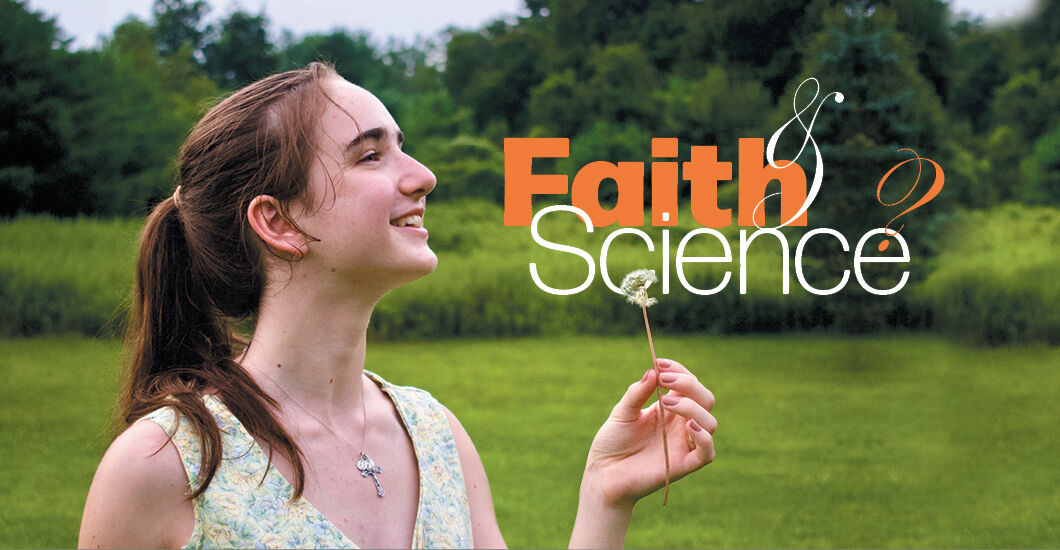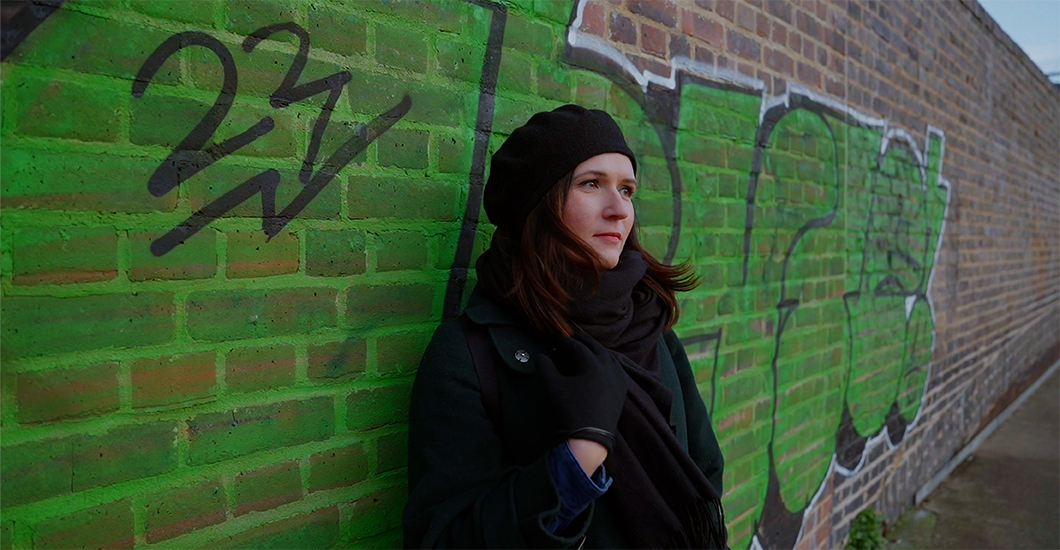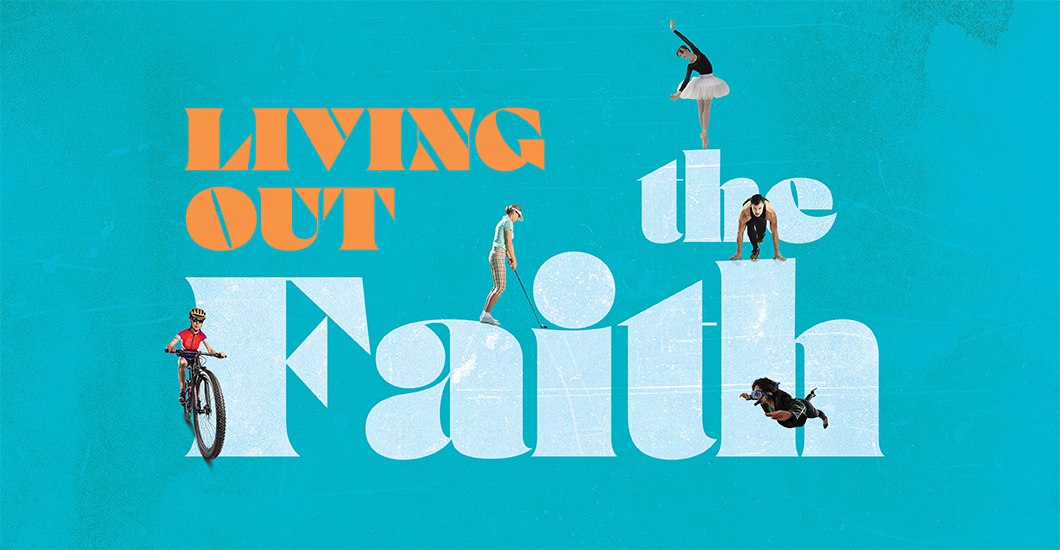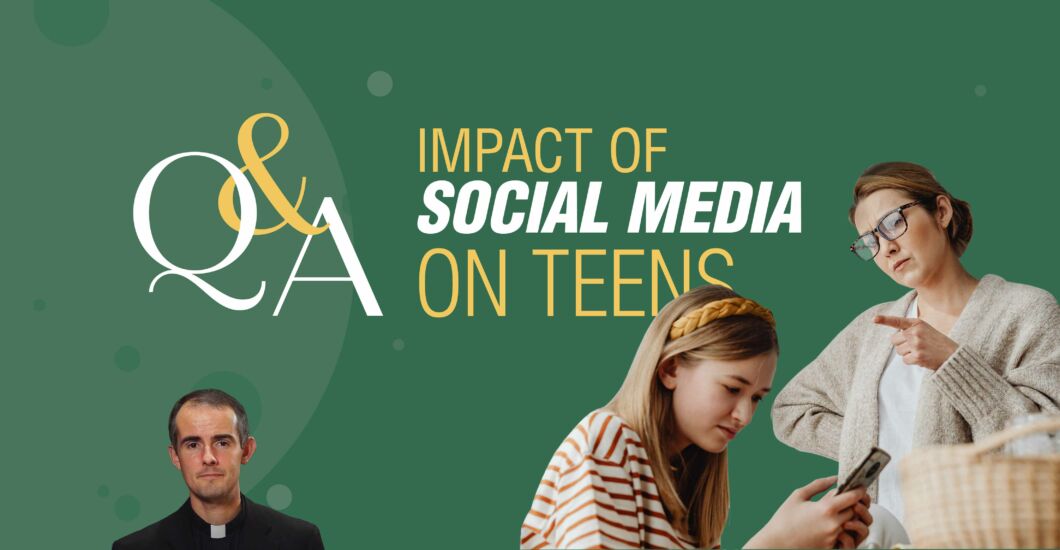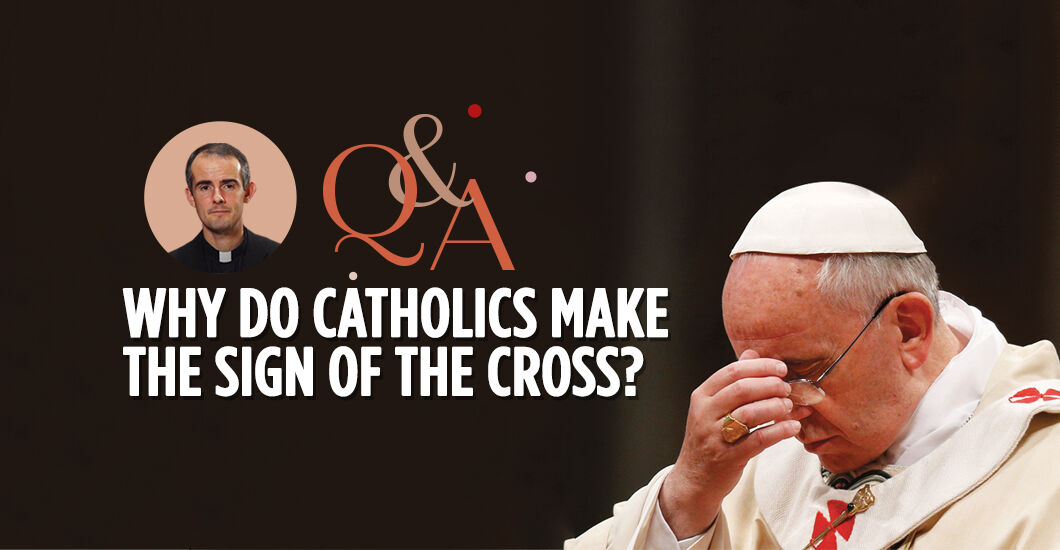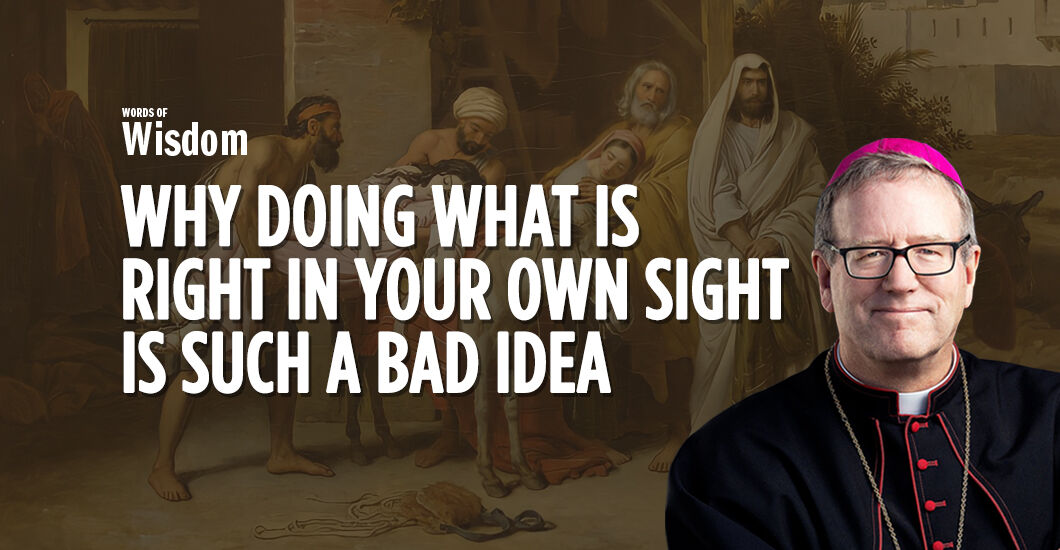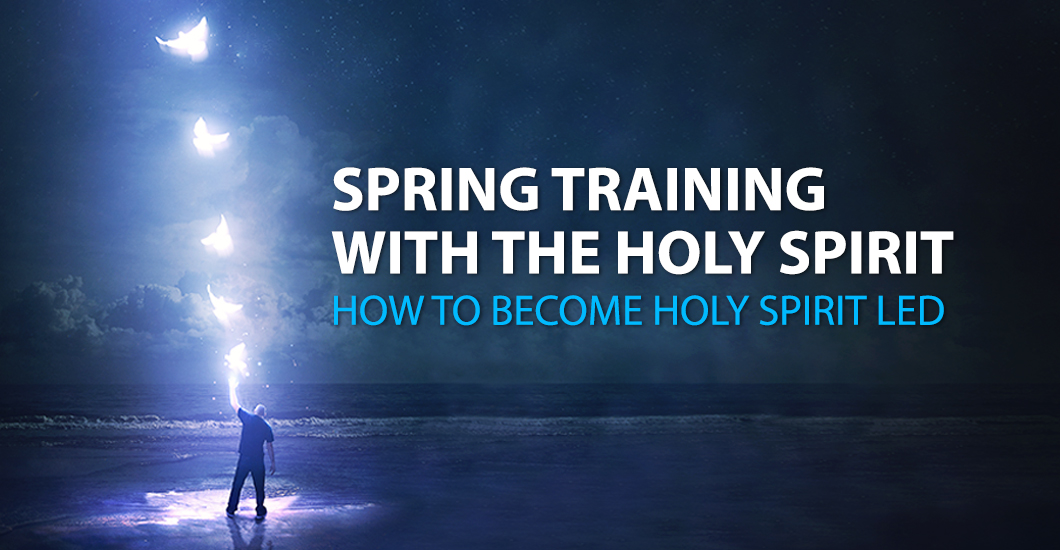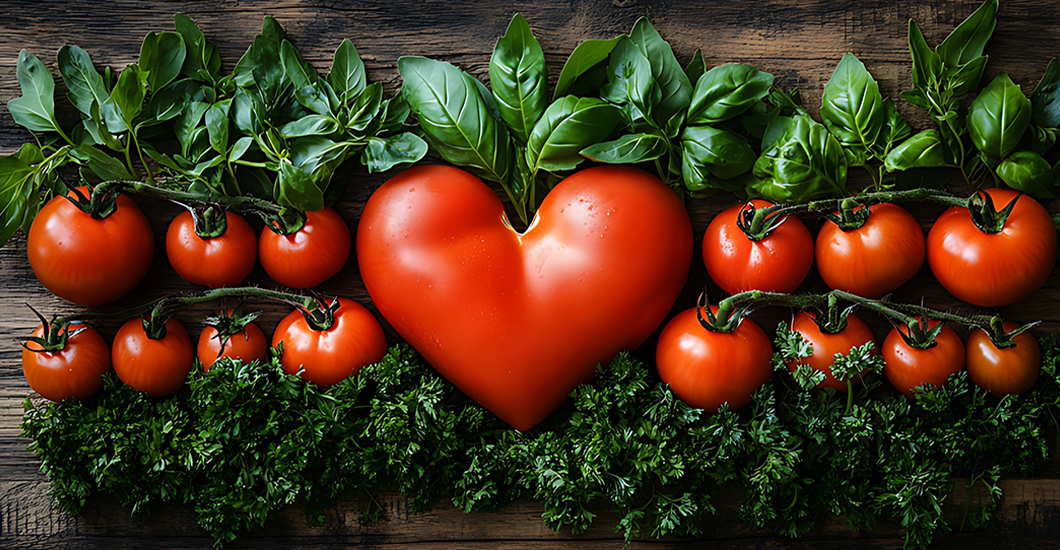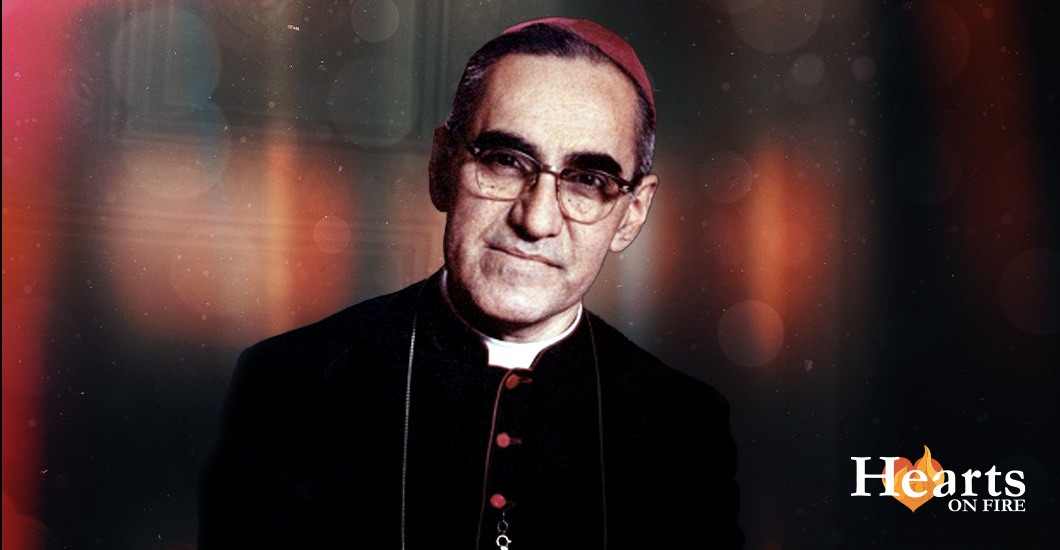Trending Articles
Faith and Science?
One of the greatest tragedies in the present world is the misconception that science and religion have to be at war…
I have spent the entirety of my primary and secondary school career in public schools where faith and secular culture clash. For years, I heard the declaration reiterated that faith and the real world simply cannot go together. Faith is something for the brainwashed, the daydreamers, and those refusing to see life for what it is. It has become old-fashioned in the eyes of many, something no longer needed now that we have modern science and philosophy to explain it all. This clash was always most visible in my science courses. If not outrightly stated by teachers, it was often pointed out by students that one cannot believe in both God and science. The two are simply mutually exclusive. To me, nothing could be further from the truth. In my eyes, everything in nature serves to prove the existence of God.
God’s Perfect Design
When we look at the natural world, everything is so perfectly engineered. The sun is at the perfect distance to support life on Earth. Organisms dwelling in the ocean with seemingly no purpose actually serve to remove carbon dioxide from our seas and atmosphere to keep the earth livable for other species. The moon’s cycle many miles away in outer space is what causes the tides to change just in front of us. Even seemingly random events in nature aren’t so random when we take a closer look.
During my junior year of high school, I took a course in environmental science. In my favorite unit, we learned about the cycles of nature. The nitrogen cycle particularly impressed me. Nitrogen is a crucial nutrient for plants to grow, yet nitrogen, in its atmospheric form, is not usable for that purpose. For nitrogen to transform into usable form from the atmosphere, bacteria in the soil or a bolt of lightning are needed. A mere bolt of lightning, something which seems so random and unimportant, serves a far greater purpose!
All of nature is interwoven perfectly, just like God’s plan for our lives. Even the smallest thing has a chain of causes and effects, all serving an ultimate purpose that would alter the fate of the world if it was missing. Without the moon, the countless animals and plants which depend on the ebb and flow of tides for food would die. Without those “random” bolts of lightning, our plants would struggle to grow as the fertility of the soil declines.
Likewise, every incident in our lives, however confusing or insignificant it may seem, is foreseen and incorporated into God’s perfectly engineered plan for us when we align our wills to His. If everything in nature has a purpose, everything in our lives must also have greater meaning.
Creator in the Creation
I have always heard that we find God in three things: Truth, Beauty, and Goodness.
A logical analysis of the function of nature can serve as evidence of Truth and how God embodies that Truth. But God is not only the emblem of Truth but the very essence of Beauty. Nature, likewise, is not only a system of cycles and cells but a thing of great beauty as well, another representation of the many facets of God.
One of my favorite places to pray has always been on my surfboard in the middle of the ocean. Looking around at the beauty of God’s Creation brings me much closer to the creator. Feeling the power of the waves and recognizing my littleness amongst the vast sea always serves to remind me of God’s immense power. Water is everywhere and present in everything; it’s within us, within the sea, within the sky, and within the plants and animals in nature.
Even as it changes forms—solid, liquid, gas—it remains water. This reminds us that God is present as the Father, the Son, and the Holy Spirit. All living things rely on water to sustain them. Not only do we need water, but our bodies also consist of a large percentage of water. God, too, is omnipresent; He is the source of all life and the key to sustaining life. He is within us and is present in everything around us.
When I look at the world, I see its Creator. I feel the Lord’s heartbeat as I lie in the warm sun amidst the soft grass and flowers. I see how perfectly He painted the wildflowers, with colors as vivid as an artist’s palette, knowing that they would bring me joy. The beauty of the natural world is immeasurable. Human beings are drawn to the beauty and have sought to create it themselves through art and music. We are made in the image and likeness of God, and His love of Beauty couldn’t be more evident. We see it everywhere around us. For example, we see God’s Art in the intricate design of an autumn leaf, and His music in the sound of the crashing waves and the birds singing each morning.
Endless Mysteries
The world may try to tell us that following God, attending to the ancient wisdom of the Bible, or focusing on faith is an ignorant rejection of the Truth. Science is the truth, we are told, and religion is not. Yet what many fail to see is that Jesus came as the very embodiment of Truth. God and science are not mutually exclusive; rather, a perfect creation is only more evidence that there must be a perfect Creator. Both religious tradition and scientific discovery can be true and good. Faith is not becoming obsolete in our modern times; our scientific advancements only present more beautiful perspectives on the endless mysteries of our Lord.

Sarah Barry is a student at the University of St Andrew’s in Scotland pursuing a degree in Biblical Studies. Her love of writing has allowed her to touch souls through her Instagram blog @theartisticlifeofsarahbarry. She hopes to use her gifts to spread the love of God.
Related Articles
From being a healthy Uni-student to a paraplegic, I refused to be confined to a wheelchair… In the initial years of University, I slipped a disc. Doctors assured me that being young and active, physiotherapy, and exercises could make me better, but despite all effort, I was in pain every day. I had acute episodes every few months, which kept me in bed for weeks and led to repeated hospital visits. Nevertheless, I held on to hope, until I slipped a second disc. That's when I realized my life had changed. Angry at God! I was born in Poland. My mom teaches theology, so I was brought up in the Catholic faith. Even when I moved to Scotland for University and then to England, I held onto it dearly, maybe not in a do-or-die manner, but it was always there. The initial phase of moving to a new country wasn’t easy. My home had been a furnace, with my parents fighting among themselves most of the time, so I had practically run away to this alien land. Leaving my difficult childhood behind, I wanted to enjoy my youth. Now, this pain was making it difficult for me to hold down jobs and keep myself financially balanced. I was angry at God. Yet, He wasn’t willing to let me go. Trapped at home in acute pain, I resorted to the only available pastime—my mother’s collection of religious books. Slowly, the retreats I attended and the books I read led me to realize that despite my distrust, God really wanted my relationship with Him to be strengthened. But I was also not totally over the anger that He wasn’t healing me yet. Eventually, I came to believe God was angry at me and didn’t want to heal me so I thought maybe I could trick him. I started looking for a holy priest with good ‘statistics’ for healing so that I could get healed when God was busy doing other things. Needless to say, that never happened. A Twist in My Journey One similar day in a prayer group, I was in so much pain. Fearing an acute episode, I was planning to leave when one of the members there asked if there was something I would like them to pray for. I was having some trouble at work, so I said yes. As they were praying, one of the men asked if there was some physical illness that I needed praying over. They were way down on my ‘healing rating’ list, so I didn’t trust that I would receive any relief, but I said ‘Yes’ anyway. They prayed and my pain was gone. I returned home, and it was still gone. I started jumping and twisting and moving around, and I was still okay. But nobody believed me when I told them I was healed. So, I stopped telling people; instead, I went to Medjugorje to thank Our Lady. There, I had an encounter with a man who was doing Reiki and wanted to pray over me. I refused, but before leaving he gave me a goodbye hug which left me worried because I recalled his words that his touch has power. I allowed fear to take over and falsely believed this evil’s touch was stronger than God. I woke up the next morning in excruciating pain, unable to walk. After four months of relief, my pain returned so acutely that I thought I wouldn’t even be able to make it back to the UK. When I returned, I found that my discs were touching the nerves, causing even more drastic pain for months. After six or seven months, the doctors decided that they needed to do the risky procedure on my spine that they had been keeping off for a long time. The surgery damaged a nerve in my leg, and my left leg was paralyzed knee-down. A new journey began there and then, a different one. I Know You Can Do it The very first time I arrived home in a wheelchair, my parents were terrified, but I was filled with joy. I loved all the technological stuff…every single time someone pressed a button on my wheelchair, I was excited like a kid. It was over the Christmas period, when my paralysis started regressing that I realized the extent of damage to my nerves. I was admitted to a hospital in Poland for a while. I didn't know how I was going to live. I was just praying to God that I needed another healing: “I need to find you again because I know you can do it.” So, I found a healing service and was convinced that I would be healed. A Moment You Don’t Wanna Miss It was Saturday and my father had initially not wanted to go. I just told him: “You don't want to miss out when your daughter is healed.” The original schedule had a Mass, followed by the healing service with Adoration. But when we arrived, the priest said they had to change the plan as the team that was meant to lead the healing service was not there. I remember thinking I don’t need any team: “I only need Jesus.” When the Mass started, I did not hear a single word. We were sitting on the side where there was a Divine Mercy picture. I looked at Jesus like I had never seen Him before. It was a stunning image. He looked so beautiful! I never saw that picture anywhere after that. All through Mass, the Holy Spirit was enveloping my soul. I was simply saying in my head ‘Thank you’ even though I didn’t know what I was thankful for. I wasn’t able to ask for healing, and it was frustrating because I needed healing. When adoration started I asked my mom to take me to the front, as close to Jesus as possible. There, seated up front, I felt someone touching, and massaging my back. I was getting so warm and cozy that I felt like I would fall asleep. So, I decided to walk back to the bench, forgetting that I could not ‘walk.’ I just walked back and my mom ran after me with my crutches, praising God, saying: “You are walking, you are walking.” I was healed, by Jesus in the Blessed Sacrament. As soon as I sat down, I heard a voice saying: “Your faith has healed you.” In my mind, I saw the image of the woman touching the cloak of Jesus when He was passing. Her story reminds me of mine. Nothing was helping until I reached this point where I started trusting Jesus. The healing came when I accepted Him and told Him: “You are all I need.” My left leg had lost all its muscles and even that grew back overnight. It was very significant because the doctors were measuring it before, and they found an astounding, unexplainable change. Shouting it Out This time around when I received the healing, I wanted to share it with everyone. I wasn't embarrassed anymore. I wanted everyone to know how amazing God is and how much He loves all of us. I'm no one special and I haven't done anything special to receive this healing. Being healed also doesn't mean that my life became super-comfortable overnight. There are still difficulties, but they are much lighter. I take them to the Eucharistic Adoration and He gives me solutions, or ideas on how I can deal with them, as well as the assurance and trust that He will deal with them.
By: Ania Graglewska
MoreWe are all looking for ‘immersive’ experiences, but what of the ultimate experience we have been freely given? During the Worldwide Developers Conference in California, Apple introduced its Vision Pro headset, a head-mounted device resembling oversized swimming goggles. Essentially, it functions as a comprehensive computer, smartphone, and home theatre, incorporating virtual reality, augmented reality, and mixed reality technologies. Many consider this product to be the future of smartphones. With the Vision Pro headset, users can control their visual experience, actions, and even thoughts using voice commands and hand and finger gestures in the air. My brain popped. Imagine the possibilities! But could the use of this headset raise concerns about increased social isolation and a decline in shared experiences? For instance, if it replaces the traditional cinema room with large televisions where families not only watch something together but also bond with each other, wouldn’t this technology endanger core human connections? But what if there is an immersive experience that does not destroy the experience of communion? Getting Connected Have you ever considered that when we receive the Blessed Sacrament, God is giving us the most amazing immersive experience ever? By creating us in His image and likeness, God gifted us with His desire for shared experience and union. In its fullness, this is a desire for union with God Himself. As the psalmist writes: “As a deer longs for flowing streams, so my soul longs for you, O God. My soul thirsts for God.” (Psalm 42: 1-2) However, our contemporary culture has perverted this longing into an obsession with sex, power, money, and belongings. Sin has corrupted our desire for holistic union. Jesus expresses His longing for communion with us when He tells the apostles: “I have eagerly desired to eat this Passover with you…” (Luke 22:15). He desired to be in communion with us so much, that He commanded us to eat and drink Him–to be so united with Him that our bodies are commingled. The Eucharist is not a one-man show. It is a shared experience of a community around the table sharing one cup and one bread. Participation is its core. Richard Hooker, a theologian writes that 'participation' refers to the reciprocal and intimate connection between Christ and believers where Christ holds us, and we hold Christ. In this bond, there is a sense of sharing one another through a unique relationship, shared interests, and a profound union. Christ is truly present in the bread and wine, and it is radical faith. If we believe Christ is present universally, why would it be hard to believe that he is truly present in the consecrated host and wine? This presence is designed for intimate communion by eating and drinking. As we leave the church, we carry His presence into the world. Then, as we pour out ourselves in service to others, we draw them into His presence.
By: Father Bony Abraham
MoreTrapped in the busy and burdensome web of everyday life, is it possible to keep yourself connected to God? Sometimes, it seems as though my faith goes through seasons each year. At certain times, it is blossoming like the sunbathed flowers of summer. This is usually during vacation time. At other times, my faith feels like the sleeping world of winter—dormant, not in full bloom. This is typical during the school year when my schedule does not allow for daily adoration or hourly prayer breaks, unlike the free vacation times. These hectic months are usually occupied by classes, chores, activities, and time with family and friends. It is easy, amidst the hustle and bustle, not to necessarily forget God but to let Him fall into the background. We may go to church every Sunday, say our prayers, and even pray a daily Rosary, but we keep our faith and ‘normal’ life separate. Religion and God are not meant to be saved strictly for Sundays or summer breaks. Faith is not something we should cling to solely in times of distress or return to briefly just to give thanks and then forget. Rather, faith should be interwoven with every area of our daily life too. Daily Humdrum Whether we own our own house, stay in a college dorm, or live with our family, there are certain jobs we cannot escape. Homes must be clean, clothes must be washed, food must be made...Now, these tasks all seem like boring necessities—things that mean nothing, yet we still have to do them. They even take up the time we could have used to step into the adoration chapel for thirty minutes or attend daily mass. Yet, when we have little children at home who need clean clothes or parents coming home after work who would like to find scrubbed floors, this isn’t always a realistic alternative. Filling our time with these necessities, though, doesn’t have to become time taken away from God. Saint Thérèse of Lisieux is well known for her “little way.” This method centers on the little things with immense love and intention. In one of my favorite stories of Saint Therese, she wrote about a pot in the kitchen that she hated to wash (Yes, even Saints have to wash dishes!). She found the task incredibly disagreeable, so she decided to offer it to God. She would finish the chore with such joy, knowing that something seemingly meaningless was given purpose by bringing God into the equation. Whether we’re washing dishes, folding laundry, or scrubbing floors, each boring chore can become a prayer by simply dedicating it to God. Magnified Joy Sometimes, when the secular society looks at the religious community, they do so with the assumption that the two worlds can never collide. I’ve been shocked to learn that so many people think you can’t follow the Bible and have fun! This could not be further from the truth. Some of my favorite activities include surfing, dancing, singing, and photography; much of my time is devoted to doing them. Often, I dance to religious music and create videos for Instagram paired with a message of faith in my caption. I’ve sung in church as a cantor and love using my gifts to serve God directly. Yet, I also love performing in shows like The Wizard of Oz or photographing football games—secular things that bring me great joy. This joy is further magnified when I offer these activities to the Lord. Backstage of a show, you will always find me praying before my entrance, offering the performance to God, and asking for Him to be with me as I dance or sing. Simply working out to stay in shape is something else I both enjoy and value to maintain my health. Before I start a run, I offer it to God. Often, in the middle of it, I place my exhaustion in His hands and ask Him for the strength to help me make the final mile. One of my favorite ways to exercise and worship God is to go for a rigorous Rosary walk, thereby working out both my body and my spiritual well-being! In Everything, Everywhere We do often forget to find God in other people, don’t we? One of my favorite books is a biography of Mother Teresa. The author, Father Leo Maasburg, knew her personally. He recalls once seeing her deep in prayer as a reporter timidly inched up, afraid to interrupt to ask his question. Curious as to how she would react, Father was surprised to see her turn to the reporter with joy and love on her face rather than irritation. He remarked how, in her mind, she had simply turned her attention from Jesus to Jesus. Jesus tells us: “Truly I tell you, just as you did it to one of the least of these who are members of my family,[a] you did it to me.” (Matthew 25:40). But Jesus is not only found in the poor or the sick. He’s found in our siblings, our friends, our teachers, and coworkers. Simply showing love, kindness, and mercy to those who stumble across our path can be yet another way to give love to God in our busy lives. When you bake cookies for a friend’s birthday or even just go out to lunch with someone you haven’t seen in a while, you can bring God’s love into their lives and further fulfill His will. Wherever You are… Within our own lives, we move through different stages as we age and grow. The daily routines of a priest or a nun will look very different from those of a faithful layperson with a family to care for. The daily routines of a high schooler will likewise be different from the routines of the same individual once they’ve reached adulthood. That is what is so beautiful about Jesus—He meets us where we are. He doesn’t want us to leave Him at the altar; in the same way, He doesn’t simply leave us when we exit His church. So, instead of feeling like you’ve let go of God as your life gets busy, find ways to invite Him into everything you do, and you will find that everything in your life becomes infused with greater love and purpose.
By: Sarah Barry
MoreOn a scorching afternoon on the streets of Calcutta, I met a boy… Prayer is an undeniable, central, and key part of every Christian’s life. However, Jesus emphasized two more things which clearly went hand in hand with prayer—fasting and almsgiving (Matthew 6:1-21). During the seasons of Lent and Advent, we are specifically called to commit more time and effort to all three ascetic practices. ‘More’ is the important word. Whatever season we are in, radical self-denial and giving are a continuous call for each baptized believer. Around eight years ago, God literally made me stop and think about it. Unexpected Meeting In 2015, I had the great privilege and blessing of fulfilling a lifelong dream to be with and serve some of the most in-need brothers and sisters worldwide in Calcutta, India, where the poor are described not only as poor but the ‘poorest of the poor.’ From the moment I landed, it was as though electricity was running through my veins. I felt such immense gratitude and love in my heart to be given this amazing opportunity to serve God with Saint Mother Teresa’s religious order, the Missionaries of Charity. The days were long but absolutely action-packed and grace-filled. Whilst I was there, I did not intend to waste a moment. After a 5 AM start to each day with an hour of prayer, followed by Holy Mass and breakfast, we set off to serve at a home for the sick, destitute, and dying adults. During the break at lunchtime, after a light meal, many of the religious brothers I was staying with took a siesta to recharge their batteries, to be ready to go again in the afternoon and on into the evening. One day, instead of having a rest in the house, I decided to go for a walk to find a local internet café, to contact my family by email. As I turned one of the corners, I encountered a young boy aged around seven or eight years old. His face expressed a mixture of frustration, anger, sadness, hurt, and tiredness. Life had already seemed to have begun to take its toll on him. He was carrying over his shoulder the biggest transparent, heavy-duty plastic bag that I had seen in my life. It contained plastic bottles and other plastic items, and it was full. My heart broke within me as we stood silently examining one another. My thoughts then went to what I could give this young boy. My heart sank, as I reached for my pocket, realizing that I only had a small amount of change with me to use for the internet. It added up to less than one pound in English money. As I gave it to him, looking him in the eye, his whole being seemed to change. He was so lifted and grateful, as his beautiful smile lit up his beautiful face. We shook hands, and he walked on. As I remained standing in that back street of Calcutta, I stood in awe as I knew that the Almighty God had just personally taught me such a powerful life-changing lesson through this encounter. Reaping Blessings I felt God had beautifully taught me in that moment that it is not the actual gift that is important but the disposition, intention, and love from the heart with which a gift is given. Saint Mother Teresa beautifully summed this up saying, “We cannot all do great things, but we can do small things with great love.” Indeed, Saint Paul said, if we give away all we have “but have not love,” we gain nothing (1 Corinthians 13:3). Jesus describes the beauty of giving, that when we “give… it will be given to you; good measure, pressed down, shaken together, running over, will be put into your lap. For the measure you give will be the measure you get back.” (Luke 6:38). Saint Paul also reminds us that “Whatever a man sows, that he will also reap” (Gal 6:7). We do not give in order to receive, but God in His infinite wisdom and goodness blesses us personally in this life and also in the next when we step out in love (John 4:34-38). As Jesus taught us, “it is more blessed to give than to receive” (Acts 20:35).
By: Sean Booth
MoreQ – My pre-teens are clamoring for a phone so they can get social media, like all of their friends. I feel so torn, because I don’t want them to be left out, but I know how dangerous it can be. What is your opinion? A: Social media can be used for good. I know a twelve-year-old who makes short Bible reflections on TikTok, and he gets hundreds of views. Another young person I know has an Instagram account dedicated to posting about the saints. Other teens I know go on Discord or other chat rooms to debate atheists or to encourage other young people in their Faith. Without a doubt, there are good uses for social media in evangelization and forming Christian community. And yet…do the benefits outweigh the risks? A good maxim in the spiritual life is: “Trust God immensely…never trust yourself!” Should we entrust a young person with unfettered access to the internet? Even if they start out with the best of intentions, are they strong enough to resist the temptations? Social media can be a cesspool—not just obvious temptations like pornography or glorifying violence, but even more insidious temptations like gender ideology, bullying, becoming addicted to the “high” of getting likes and views, and feelings of inadequacy when teens start to compare themselves with others on social media. In my opinion, the risks outweigh the benefits of allowing young people access to a secular world which will try to form them away from the mind of Christ. Recently a mother and I were discussing her teenage daughter’s poor behavior and attitude, which was correlated to her use of TikTok and her unfettered access to the internet. The mother said with a sigh of resignation, “It’s just so sad that teens are so addicted to their phones…but what can you do?” What can you do? You can be a parent! Yes, I know peer pressure is tremendous to allow your kids a phone or device with endless free access to all the worst humanity has to offer (aka social media) – but as a parent your job is to form your children to be saints. Their souls are in your hands. We must be that first line of defense against the dangersof the world. We would never allow them to spend time with apedophile; if we knew they were being bullied we would try to protect them; if something were harming their health, we would spare no expense to rush them to the doctor. Then why wouldwe allow them a window into the cesspool of porn, hatred, and time-wasting trash that’s readily available on the internet without offering careful guidance? Study after study has shown the negative effects of the internet in general—and social media in particular—but still we turn a blind eye and wonder why our teenage sons and daughters struggle with identity crises, depression, self-hatred, addictions, aberrant behavior, laziness, a lack of desire for holiness! Parents, do not abdicate your authority and your responsibility! At the end of your lives, the Lord will ask you how well you shepherded these souls He entrusted to you—whether or not you led them to Heaven and preserved their souls from sin to the best of your ability. We cannot use the excuse, “Oh, well everyone else’s kids have one, so my kid would be strange if they didn’t! Will your kids be angry with you, maybe even say they hate you, if you put restrictions on their devices? Probably. But their anger will be temporary—their gratitude will be eternal. Recently another friend who travels the country speaking about the dangers of social media told me that after her talk she always has many young adults come up to her with one of two reactions: “At the time I was furious with my parents for taking away my phone, but now I’m grateful.” OR “I really wish my parents had protected me from losing so much innocence.” No one has ever been grateful that their parents were so permissive! So, what can be done? First, do not give teens (or younger!) phones with internet or apps. There are plenty of dumb phones still in existence! If you must give them phones that access the internet, put parental restrictions on them. Install Covenant Eyes on your son’s phones—and on your home computers while you’re at it (almost every Confession I hear involves pornography, which is mortally sinful and can lead your son to view women as nothing but objects, which will have huge ramifications on his future relationships). Do not allow them to use their screens at meals or while alone in their bedrooms. Get the support of other families who have the same policies. Most importantly—do not try to be your kid’s friend, but be their parent. Authentic love requires boundaries, discipline, and sacrifice. Your kid’s eternal welfare is worth it, so do not say, “Alas, I can’t do anything—my kid needs to fit in.” It’s better to stand out here on earth so we can fit into the Communion of Saints!
By: Father Joseph Gill
MoreQuestion: Why do Catholics make the Sign of the Cross? What is the symbolism behind it? Answer: As Catholics, we pray the Sign of the Cross multiple times each day. Why do we pray it, and what’s it all about? First, consider how we make the Sign of the Cross. In the Western Church, we use an open hand—which is used in blessing (hence we say that we “bless ourselves”). In the East, they hold three fingers together, as a sign of the Trinity (Father, Son, and Holy Spirit), while the other two fingers are united as a sign of Christ’s Divinity and humanity. The words we say confess the mystery of the Trinity. Notice that we say, “In the Name of the Father…” and not “In the Names of the Father”—God is one, so we say He only has one Name—and then we go on to name the Three Persons of the Trinity. Every time we begin a prayer, we recognize that the very core of our faith is that we believe in a God Who is One-in-Three: both unity and trinity. As we say that confession of faith in the Trinity, we seal the sign of the Cross on ourselves. You are marking, publicly, who you are and Who you belong to! The Cross is our ransom, our “price-tag” if you will, so we remind ourselves that we have been purchased by the Cross. So when Satan comes to tempt us, we make the sign of the Cross to show him that we are already marked! There is an amazing story in the book of Ezekiel, where an angel comes to Ezekiel and tells him that God is going to chastise all of Israel for its unfaithfulness—but there are still some good people left in Jerusalem, so the angel goes around and puts a mark on the foreheads of those who are still faithful to God. The mark he makes is the “Tau”—the last letter of the Hebrew alphabet, and it is drawn like a cross! God has mercy on those marked with the Tau, and strikes down those without it. In the same way, those of us who are signed with the Cross will be preserved from the justice of God, and will receive His mercy instead. In ancient Egypt, God had the Israelites put the lamb’s blood over their doors at Passover so that they would be saved from the angel of death. Now, by signing the Cross over our bodies, we invoke the Blood of the Lamb upon us, so that we are saved from the power of death! But where do we put that Sign of the Cross? We put it on our forehead, our heart, and our shoulders. Why? Because we are put here on this earth to know, love, and serve God, so we ask Christ to be the king of our minds, our hearts (our desires and loves), and our actions. Every aspect of our life is put under the Sign of the cross, that we may know, love, and serve Him. The Sign of the Cross is an incredibly powerful prayer. Often it’s used as the preamble to a prayer, but it has immense power in its own right. During the persecutions of the early Church, some pagans tried to kill Saint John the Apostle because his preaching was turning many people away from pagan gods to embrace Christianity. The pagans invited John over for dinner, and poisoned his cup. But before he began the meal, John prayed grace and made the Sign of the Cross over his cup. Instantly a snake crawled out of the cup, and John was able to escape unharmed. Listen to the words of Saint John Vianney: “The Sign of the Cross is the most terrible weapon against the devil. Thus, the Church wishes not only that we have it continually in front of our minds, to recall to us just what our souls are worth and what they cost Jesus Christ, but also that we should make it at every juncture ourselves: when we go to bed, when we awaken during the night, when we get up, when we begin any action, and, above all, when we are tempted.” The Sign of the Cross is one of the most powerful prayers we have—it invokes the Trinity, seals us with the Blood of the Cross, puts to flight the Evil One, and reminds us who we are. Let us make that Sign carefully with devotion, and let us make it frequently throughout the day. It is the outward sign of who we are, and Who we belong to.
By: Father Joseph Gill
MoreWhat does the Bible think about our current cultural fascination with finding our own voices, setting our own agenda, doing things according to our own lights? (By the way, if you doubt that this attitude is dominant today, I would invite you to watch practically any movie, listen to practically any popular song, or read practically anyone’s latest blog or Facebook posting). Is the Bible for or against this ego-dramatic approach to life? Might I suggest we look at the close of the book of Judges, a text marked by enough murder, mayhem, and miscreancy to put Martin Scorsese or Quentin Tarantino to shame. After the death of Samson, the last of the judges of Israel, the tribes, we are told, drifted into disunity and commenced to manifest shocking violence to one another. The most remarkable and frankly sickening story, again in a book filled with such stories, concerns the outrage at Gibeah. We hear of a man from Ephraim in the north who had taken a concubine from Bethlehem in the south. When the woman escaped and returned home, the man came after her and took her back into his possession. He then set out with her and came to the town of Gibeah. We are told that “scoundrels” from the city that night surrounded the house. Exactly duplicating the infamous tale from the book of Genesis, the mob shouted to the owner of the place: “Bring out the man who has come into your house, so that we may get intimate with him.” With astonishing moral turpitude, the owner of the abode replied, “Do not commit this terrible crime. Instead, let me bring out my virgin daughter and this man’s concubine. Humiliate them or do whatever you want; but against him do not commit such a terrible crime.” At that, they shoved the concubine outside, and the men, we are blithely informed, “raped her and abused her all night until morning.” Utterly indifferent to her suffering and humiliation, the man placed her, next morning, on his beast of burden and commenced the journey to Ephraim. When he arrived home, “he got a knife and took hold of the body of the woman, cut her up into twelve pieces, which he then sent throughout the territory of Israel. Was she dead when he found her that morning? Did she die on the way? Did he kill her? We’re not told, which only adds to the horror of the narrative. When the gruesome message was received across the nation of Israel, the elders assembled an army and attacked the city of Gibeah, effecting a general slaughter of the people. Now, why do I rehearse this awful tale? Though there is a good deal of competition for the distinction, I believe that this gruesome and cruel episode represents the low point of human behavior described in the Bible. We have cruelty, crude physical violence, utter disregard of human dignity, sexual immorality, rape, cooperation with sexual abuse of the worst kind, murder, mutilation, and genocide. As an aside, I am always slightly amused when some Christians primly criticize me for watching, and in some cases recommending, films in which violence and immorality are on vivid display. I wonder, “Have they ever even read the Bible?” If the Bible were depicted honestly in film, the movie would receive at least an “R” rating. One of the great virtues of the Scriptures is that they are brutally honest about human beings and the myriad ways that we go wrong, the thousands of bad paths down which we walk. Another virtue of the Bible is that its authors know precisely where all this dysfunction comes from. The book of Judges clearly indicates that the moral chaos it describes is a function of the disappearance of anything like moral leadership among the people. When the judges faded away, the law was no longer taught and enforced, and hence the people wandered into appalling behavior. Rudderless and without a captain, the ship simply smashes into the rocks. The final line of the book of Judges sums up the spiritual situation: “In those days there was no king in Israel; everyone did what was right in their own sight.” I would not interpret this necessarily as an endorsement of kings in the political sense, but rather of leadership in the moral sense. A healthy society needs leaders—political, economic, cultural, religious, etc.—who are animated by a keen sense of objective moral value, who have risen above mere subjective self-interest. The scriptural authors knew that the strident assertion of one’s own private prerogatives, so on display today, is fundamentally adolescent and morally catastrophic for any human community. This is why the heroes of the Bible are never those who “find themselves,” but rather those who heed the voice of God and remain obedient to the mission that God has given them. Mind you, as is often the case, the Bible trades in exaggeration and overstatement in order to get our attention, similar to the method employed by Flannery O’Connor in her macabre stories. So the almost cartoonish violence displayed in Judges is meant as a warning to a society such as ours that is increasingly losing its moral bearings: you might not be there yet, but this is where the road that you have embarked upon is leading you. Next time you find yourself wondering why the world is in such a precarious state, call to mind the final lines of the book of Judges: “Everyone did what was right in their own sight.”
By: Bishop Robert Barron
MoreJust as baseball players head to spring training to practice and prepare for their upcoming season, might I suggest spring training for something a little different: being led by the Holy Spirit. After Deacon Ralph Poyo lead my parish’s mission one year, the message that spoke directly to me was that we need to be a people and a parish that is led by the Holy Spirit. If we do not ask for the Holy Spirit to guide us in all things, we will not become the vibrant, welcoming parish we desire and the saints we are meant to be. For example, after the second evening of the mission, when Deacon Ralph talked about spiritual warfare, I commented to him that I had dreamt about demons afterward. I asked him, “Is this something I should be worried about?” He said, “I am not who you should be asking. Who should you be asking instead?” I immediately replied that “Oh, I should probably talk with our pastor.” He said, “Nope!” Then I realized I should be talking to God and he clarified that I should ask the Holy Spirit specifically. Light bulb moment! The Challenge of Being Holy Spirit Led Living guided by the Holy Spirit is not easy, as it is not how we usually live our lives. Rather, we tend to think what do I want right now and how can I get it? Or what do my kids want and how can I get it for them? We have to relinquish that “me, me, me” self-centered way of life and change it to “He, He, He.” That requires some serious spring training for all of us to get into spiritual shape! What does it mean to live guided by the Holy Spirit? It means asking His guidance in all things. I do not know about you but I cannot remember to throw the empty shampoo bottle into the recycling bin, so remembering to ask the Holy Spirit for guidance before all things? That is going to take some practice with undoubtedly a few curve balls along the way. If we want to live “Holy Spirit-led,” then we have to turn it into a habit; we have got to get to the point that it is just a part of our “swing.” That means at least three weeks of doing this on a regular basis until it becomes ingrained in our day-to-day activities, so we no longer have to exert effort to make it happen. That takes practice! Not only do we have to remember to ASK, we have to remember to take time to LISTEN for His answers and then ACT on them. I pray every day to Mary for the grace to better discern God’s will for me, to actually DESIRE His will for me and then to have the courage to DO His will for me. Spring Training Exercises to be Holy Spirit-Led: Most importantly, we have to give the reigns of our lives over to God, allowing Him permission to guide us. Here are some other ideas and suggestions: ◗ Go to daily mass as often as you can and present your questions during mass. ◗ Spend some time in the Blessed Sacrament at the beginning or end of your day, lifting up your thoughts to the Holy Spirit. ◗ In the book “Walking with Purpose: Seven Priorities That Make Life Work” by Lisa Brenninkmeyer, the author suggests taking some morning prayer time to do the following: ➔ Using a journal, write a note to God/Holy Spirit about any worries, concerns or direction that you need; ➔ Write down a list of what you need to pray for daily. ➔ Read the Bible—You can read the daily readings or follow a Bible Reading Plan like the one from the Coming Home Network. Look for answers from the Holy Spirit. ◗ Before major discussions, emails and phone calls, stop and say a prayer for those involved and that God’s will be done. ◗ Pray the Angelus at noon—Set a timer on your phone and stop and pray this short prayer in solidarity with others around the world. ◗ Pray one of the Liturgy of the Hours—Download the Laudate app on your smart phone and stop and pray at 6 a.m., 9 a.m., 12 p.m., 3 p.m., 6 p.m. or 9 p.m. ◗ Pray your calendar each day. Stop and review your calendar, praying for each person you will meet or talk with that day. ◗ Daily Reflection/Examination of Conscience— Matthew Kelly’s “Dynamic Catholic” offers a great prayer process you can complete upon the close of the day, examining what you did and did not do to be the best version of yourself, pray for others, thank God for what you are grateful for that day, etc. ◗ Go to Reconciliation monthly, so you can properly “hear” the Holy Spirit rather than have Him be clouded out by sins, even little ones. ◗ Receive the Eucharist as often as you can to continue to cleanse yourself of sin and receive grace from God. ◗ Engage in spiritual reading and look for answers from the Holy Spirit. After You Listen, Put What You Learned into Practice These exercises help us make time to ask and listen to the Holy Spirit but then it is time to ACT, which can be the toughest part. You are going to be out on the field, in front of everyone, putting into action all that you have learned in training and following the coach’s (Holy Spirit) orders even if you do not like them. The Holy Spirit puts me outside of my comfort zone all the time in what He asks of me. I have slowly adopted the attitude that it does not matter what others think, only what God thinks. As an introvert, if I feel afraid to introduce myself to someone, or think they might think I am being too forward or strange, it does not matter; as embarrassment and anxiety creep in, I try to let those feelings go. I have to be at peace knowing I was trying to do what God asked and knowing He will be pleased no matter what anyone else may think, even if I feel embarrassed or silly as a result (believe me, that happens most of the time!). That is truly all that matters. Are you ready to be Holy Spirit-led? It is critical if we want to become the saints God desires us to be. Let us let Him lead us to the Promised Land but first let the spring training begin!
By: Lyn Mettler
MoreLatest Articles
It was the year 387, when Monica saw seventeen years of her fervent prayers in tears being answered. She was overwhelmed with joy upon seeing her wayward son Augustine getting baptized by Saint Ambrose in Milan. Soon, they left for Africa, where she fell ill due to the land journey. While in Ostia, Monica announced that she did not want to sail back to North Africa and instead preferred to remain in Ostia until her death. Her sons were surprised to learn their mother’s decision because they were hoping to take her back to her homeland. She told them she wanted them to remember her at the Lord’s altar, wherever they were. Through this statement, Monica made it clear that remembering her at the Mass was way more important than her burial location. When Monica knew she was nearing her death, she revealed to Augustine: “Son, nothing in this world now affords me delight. I do not know what there is now left for me to do or why I am still here, all my hopes in this world being now fulfilled.” A few days later, she fell seriously ill, and her soul breathed the last. Respecting her wishes, Monica was buried in Ostia but soon her body was moved to a hidden crypt in Santa Aurea in the 6th century. Later, Saint Monica’s tomb was transferred to the Basilica of Sant'Agostino in Rome. Monica, the patron Saint of Mothers, truly believed that she would be close to her sons during the celebration of the Holy Eucharist. Her unwavering faith in Christ is a profound example that shows prayer without ceasing and hope without doubting shall bear fruit one day.
By: Shalom Tidings
MoreDo you know how to handle little things that drive you nuts? The other day, I misplaced my car keys when I was in my office building, which is a huge place. It has a large first floor with many side rooms, an enormous basement, and various offices upstairs. There were so many places my keys could have been since I went up and down the stairs all day long. Saying a quick prayer, I retraced my steps, trying to remember where I laid my keys down. After walking around for a while, I suddenly remembered where I might have put them and ran upstairs to one of the offices. Sure enough, there were my car keys. Thank you, Jesus! I find that there is always a lesson lurking in the day's events—if I stop and reflect. Just as parents are alert for and use ‘teaching moments’ to educate their kids, so, too, does God use teaching moments to form us. They are often small grievances, for example, driving all the way to the store and realizing you forgot your wallet. Or worse, getting to the checkout with your cart full of groceries before you realize you don’t have your wallet. Or locking your keys in your car—and worse, seeing that you also locked your cell phone in there! Seeking Fervently… These small events can cause frustration and anger, or we can choose to see them in the light of God's training and disciplining us. If we choose the second option, we can say: “Okay, Lord. I choose to praise You and thank You because Ephesians 5:20 says: ’Giving thanks to God the Father at all times and for everything in the name of our Lord Jesus Christ.’” When we lose our keys and are searching for them, we can say: “Thank You, Lord, for this trial of inconvenience.” As fervently as I am seeking for my keys, I want to fervently be seeking You. “Your face, Lord, do I seek.” (Psalm 27:8) If we can perceive God's loving hand in allowing these things to happen so that they can help train and discipline us, then we can smile and even laugh at daily annoyances. This is something that a priest taught me. Father Jack used to call his guardian angel ‘Laughing Boy’ because of these kinds of little mishaps. If he locked himself out of the car, missed a ride, or couldn't find a paper he needed, Father Jack would say: “Laughing Boy is at it again!” And he would chuckle. Father Jack had learned and taught us an important lesson–don’t take yourself too seriously. The ability to laugh at yourself and at the little grievances of the day helps to keep a smile on your face, and then you will radiate joy to those you meet. Remember, there is always a lesson. Take time to ponder and say: “Okay, God. Here I am. What are You trying to teach me in the events of this day?” Then look at how you responded. Did you learn something and grow in virtue, or did you react badly? Don't worry if you fail. There will be more pop quizzes tomorrow.
By: Ellen Hogarty
MoreLast spring, the enthusiasm I felt about planting a vegetable garden was so great! I couldn’t wait for the right time to put those tiny plants into the dirt. When the time came, I had to decide what to plant. Last year and again this year, I decided to plant vegetables that could be used in preparing a salad. This included lettuce, tomatoes, green onions, radishes, and a variety of peppers. As my garden began giving us a variety of vegetables, my husband and I savored the taste of our fresh salads almost daily throughout the summer. I suppressed the thought of the season-ending and that the last harvest would be soon. It just wouldn’t be the same going to the grocery store and purchasing these very items that God had provided us all summer long. Instead, I decided to be grateful for His blessings. Much to my surprise and delight, the season's last tomato was heart-shaped! My mind drifted to God's love. This is certainly a gift to be shared. I took a few pictures of my gift from God and sent them to my family, simply saying: “Jesus loves you!” One dear friend told me that the tomato resembled the Sacred Heart of Jesus. She added that God can even use a tomato to tell us how much He loves us. I didn't want this beautiful and delicious tomato to spoil, so I eventually used it. As I write this story, I’m still overwhelmed by how much God loves me. Our Lord loves us in big ways, even through the smallest details of our lives, and even by using a heart-shaped tomato! He said: “The Kingdom of God is as if someone would scatter seed on the ground, and would sleep and rise night and day, and the seed would sprout and grow, he does not know how.” (Mark 4-26:27)
By: Carol Osburn
More“Those who surrender to the service of the poor through the love of Christ will live like the grain of wheat that dies,” preached Romero in his last homily. During the time when Oscar Romero was appointed as the Archbishop of San Salvador in 1977, the country was suffering from a severe economic and political crisis. With the death of his friend Father Rutilio Grande by the paramilitaries, the Archbishop became an outspoken critic of the government. The prelate, during his trips abroad, exposed the human rights abuses prevailing in the country. When the military junta seized the country, he began a radio broadcast of his sermons, openly criticizing the government for torture and mass murders. The act gained him the sobriquet, ‘The voice of those without voices.’ In a sermon on 23rd March 1980, the Archbishop implored the soldiers to stop executing government orders and, as Christians, obey God’s orders instead. The next evening, Romero celebrated Mass in a small chapel at Hospital de la Divina Providencia, a Church-run hospital specializing in oncology. After delivering the sermon, as he moved to the center of the altar, a red car stopped before the chapel, and a gunman stepped out of the vehicle, firing two shots at the Archbishop. The bullets went straight through Romero’s heart, and he breathed his last at the altar. His legacy has since inspired Catholics and non-Catholics around the world to stand against human rights abuse and fight for peace and justice. During the canonization of Archbishop Oscar Arnulfo Romero in 2018, Pope Francis wore the same blood-stained belt that Romero wore when he was killed at the altar. The Catholic Church honors this heroic life as the Patron Saint of Persecuted Christians.
By: Shalom Tidings
More